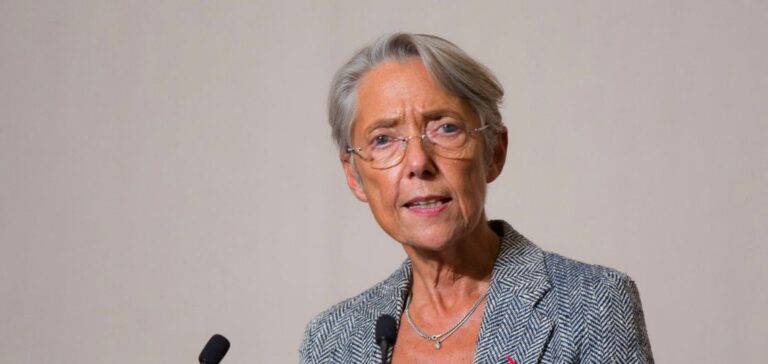The Prime Minister Elisabeth Borne will hold Wednesday afternoon a press conference “on the energy situation” while the prices of electricity and gas are soaring and the “tariff shield” expires at the end of the year, learned Tuesday AFP from his entourage.
Ms. Borne will discuss the country’s supply scenarios, after the forecasts, presented the same day, by the managers of electricity and gas transport (RTE and GRTgaz), as well as the future of the tariff shield and energy “sobriety”.
The government, which is preparing its budget proposal for 2023, has promised that the increase in gas and electricity prices will remain “contained” after the shield expires on December 31.
The ministers of Economy Bruno Le Maire and Energy Transition Agnès Pannier-Runacher will also participate in this press conference, which will be held on avenue de Ségur, in the 7th arrondissement of Paris.
Once the tariff shield is completed at the end of 2022, “we will keep devices to cushion energy prices”, while prices have exploded on the wholesale markets, “and we will take specific measures to support the most fragile”, said the Prime Minister in late August.
Bruno Le Maire had indicated for his part that the issue of expanding the number of beneficiaries of the energy voucher would be debated in Parliament on the draft budget.
This device, intended to mitigate the shock of energy inflation for the most modest households, is currently received by six million people and its amount reaches an average of 150 euros.
President Emmanuel Macron, for his part, said he was in favour of the EU imposing a contribution on energy operators who would make “undue profits” from the surge in wholesale electricity prices on the continent, in unison with Germany.
The government, which wants to bring the deficit below the 3% threshold by the end of the five-year period and extend the tariff shield in a reduced form to 2023, is also considering spreading the abolition of the contribution on the value added of companies (CVAE) over 2023 and 2024.
Since the fall of 2021, the “tariff shield” and government discounts on fuel prices have cost 24 billion euros, according to a recent figure from Bercy.





















